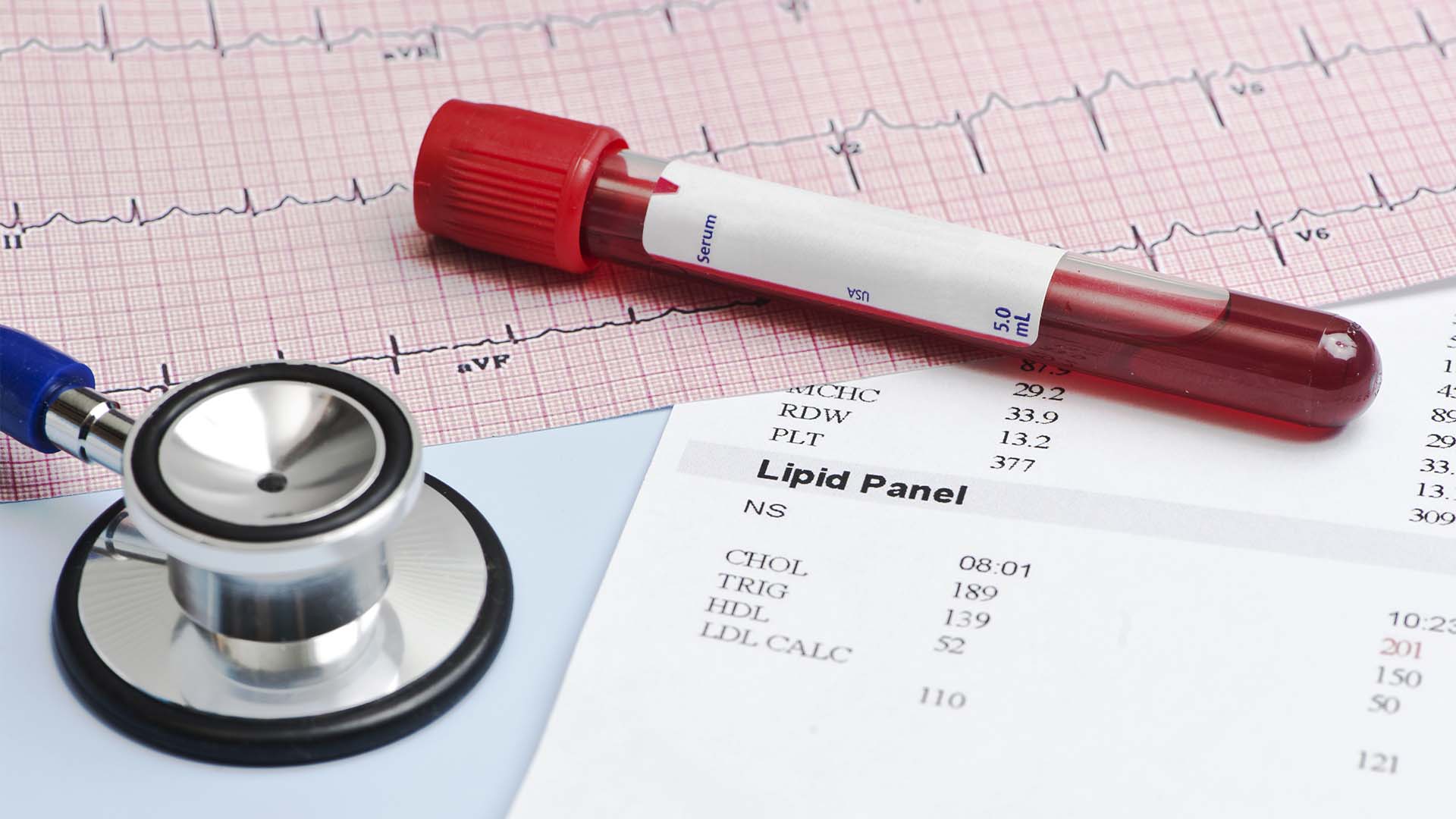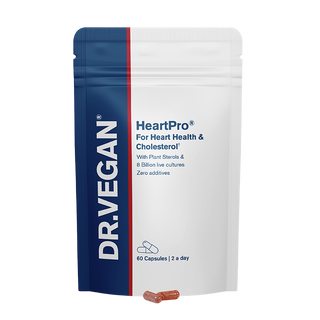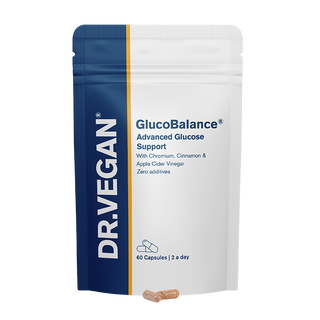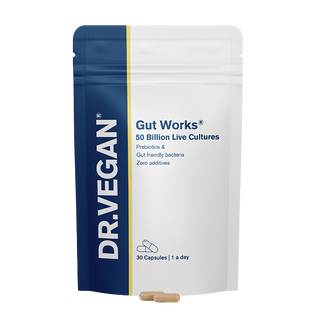5 Tips to improve 'healthy' cholesterol

‘Our health is our own personal economy and it pays us to invest in it wisely.’ Dr Jack Kruse.
High cholesterol is an indicator your body has a problem somewhere, and your body is producing more cholesterol to deal with the problem. Getting to the root cause of why your body is producing too much cholesterol should always be the priority. High cholesterol is not a disease, but it can be a marker for disease. It can also be considered a risk factor in itself for other health conditions, but this doesn't make cholesterol the cause of a disease, as is often the misconception.
How do we know if we have healthy cholesterol levels? Why does this matter? How can we best improve cholesterol values? Let our nutritionist Naomi Rowling explain.
What's your diet missing? Create your free Diet Profile.
1. Get a cholesterol test
Before we look at how we improve our cholesterol, we need to find out what our cholesterol levels are, so the first step is to get them tested. This is ideally done via your GP so that you can make sure to request a triglyceride test as well. There are four values in a cholesterol test:
- Total cholesterol
- HDH cholesterol
- LDL cholesterol
- Triglycerides
With current standard tests, only two things are usually measured – total cholesterol and HDL-cholesterol. LDL-cholesterol and triglycerides combined (referred to as 'non-HDL') are calculated by subtracting HDL from the total. LDL is not tested, including for particle size. Therefore, when considering the risks of cholesterol, it is not known if it is the small, dense particles that easily become oxidized and harmful, or the large fluffy healthy particles of cholesterol that become oxidised.
The ratio between HDL and triglycerides is also important. High triglycerides are the result of high carbohydrate consumption, not dietary fat. Bear in mind cholesterol levels will also vary according to the time of year and your age. As we get older we need more cholesterol. It’s important to remember we are all different and there is no one size fits all, and low cholesterol (below a score of 5.0) may be a risk factor for stroke and cancer.
HeartPro®

2. Reduce inflammation
Cholesterol is a very effective anti-inflammatory and will be used by the body in counteracting inflammation. An increase in cholesterol is like fire fighters at the scene of a fire - they are there for a reason. Inflammation is the equivalent of a fire in the body. Cholesterol is there to help solve the problem. By addressing sources of inflammation, cholesterol values are improved.
Why does inflammation in the body matter?
Inflammation is your immune system’s natural response to illness or injury. In the short term this is healthy because it’s helping your body to heal. Long term inflammation is an issue because it can lower your HDL and increase your LDL.
Some of the major causes of chronic inflammation that are not often appreciated are:
- Chronic stress - or more accurately our response to stress factors
- Sleep deprivation - this has reached epidemic proportions
- Allergies
- Type 2 diabetes
- Obesity - particularly abdominal obesity
- Vitamin and mineral deficiencies, including Omega 3 fats
- Deficiencies in antioxidants
- Exposure to environmental pollution
- High intake of omega 6 polyunsaturated vegetable oil, as found in sunflower oil, safflower oil, cottonseed oil, corn oil, canola oil and soybean oil
- Smoking cigarettes
- High intake of alcohol, sugar and wheat
Taking measures to address and reduce these drivers of inflammation is essential if we want to maintain healthy cholesterol values in the body. You may also enjoy learning about the 10 signs of diabetes to look out for, and 'How to manage blood pressure naturally'.
3. Eat and enjoy real food
Eating foods based on a Traditional Mediterranean diet, whether plant based or not, avoids the problems caused by consuming highly processed, refined foods with all the inflammatory trans fats, additives, artificial and plant-sweeteners and added sugars they contain. Remember, plant-sweeteners found in meal replacement and protein shakes can be 350x sweeter than sugar and have at least as high risk as artificial sweeteners in leading to type 2 diabetes.
Investing the time and effort it takes to prepare real food will pay dividends in the long term. When choosing what you eat, ask yourself – will this heal me or will it harm me?
Contrary to popular opinion the cholesterol in eggs and other cholesterol-containing foods has no impact on our cholesterol levels. Any unwanted cholesterol is removed from the body by the liver. Also, dietary cholesterol has very little effect on the amount of cholesterol your body produces.
4. Ditch processed food
Processed foods are high in unhealthy hydrogenated and trans fats, processed salt and sugar – all bad news for the body.
'Hydrogenated fats' and 'trans fats' are vegetable oils that are processed, where they have hydrogen added to extend their shelf life of the foods they're used in. They're bad news for health because they increase inflammation in the body, leading to increased levels of oxidised LDL cholesterol and lowered levels of HDL cholesterol.
Trans and hydrogenated fats are 'partially hydrogenated fats' commonly found in ultra-processed foods such as ready-meals, frozen pizza, biscuits, cakes, pies, and microwave popcorn. These fats are one reason why health experts always advise avoiding processed foods.
Ultra-processed, fake, pseudo foods are the most common causes of bloating and IBS. This is due to increased gut inflammation from trans fats and other chemical ingredients that can devastate the gut microbiome. You may also enjoy reading 'What is IBD (Inflammatory Bowel Disease)' and also 'Healthy fats and unhealthy fats explained' by our nutritionists.
5. Search for these superfoods
Functional foods, also known as superfoods, are foods that contain specific, highly beneficial compounds over and above their nutritional value. Food is information for the body and these particular foods give the body very beneficial information. These are your body’s heroes.
Garlic
Research suggests that consuming garlic can slash your risk of heart attack and stroke by half because of its effect on calcification. Black garlic extract, available in supplements, has an impressive amount of scientific backing for its efficacy. Garlic is easy to include in the diet, and great if you can handle it raw. Finely chopped it can be incorporated into many dishes on a regular basis. If you’re worried about garlic breath this can be neutralized by eating fresh parsley or drinking fresh lemon water. Learn more about the warning signs of a heart attack.
Discover HeartPro® | For Heart Health & Cholesterol
Turmeric
Turmeric, the amazing superstar of the spice world, now has many documented health benefits that support cardiovascular health. It’s a powerful anti-inflammatory that also provides antioxidant support against environmental pollutants.
Other superfoods worthy of mention are:
Pomegranates, their fresh juice can soothe chronic inflammation.
Beetroot is an excellent blood tonic and support for healthy blood vessels. Raw grated beetroot makes an excellent addition to salads.
You may enjoy our Beetroot Hummus (Ve) Recipe.

Dark chocolate (at least 80%) has been studied for its health benefits and has been shown to benefit heart health as well as prevent LDL oxidization, and dark chocolate is also one of the best foods for improving your mood. The best choice is raw and organic dark chocolate, and remember you only need a piece not the whole bar!
Watermelon and tomatoes are excellent sources of lycopene. Studies suggest lycopene can decrease the thickness and stiffness of the artery wall.
Fermented foods have many health benefits and these include sauerkraut, kimchi, kefir and drinks such as kombucha. Sauerkraut is high in Vitamin K2 with studies suggesting this can keep calcium out of the arteries and in the bones where it belongs. These foods also help to keep the gut healthy due the high levels of probiotics they contain.
Apple cider vinegar, traditionally used for centuries and valued for its health benefits, has only recently started to be properly studied and evaluated. Research is now showing it helps to balance blood sugars, supports digestive health and lowers triglyceride levels which in turn will improve cholesterol values. Add a tablespoon to a large glass of water and drink half an hour before meals or add to salad dressing. Be sure to choose organic, raw apple cider vinegar.
In summary, it’s not the just total cholesterol number that’s important but also the values. Addressing things that cause inflammation is key as well as choosing real foods over fake. Find your favourite superfoods and make them part of your diet. Wiser choices will make a huge contribution to your long term health and wellness. Think of it as your health investment plan. You get to choose how you invest in it.
You may also enjoy reading:
- Warning signs of a heart attack
- How to manage blood pressure naturally
- Why the hype about Apple Cider Vinegar?
- Why fibre in your diet is essential
Want to hear more from our nutritionists? Sign up to our email newsletter for insights and exclusive offers:




















